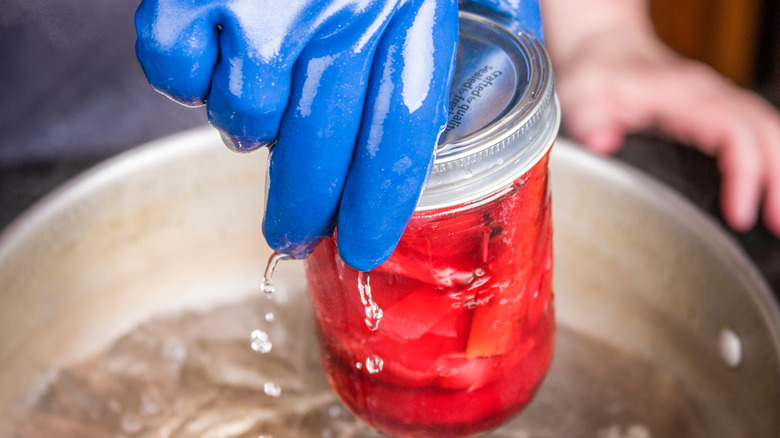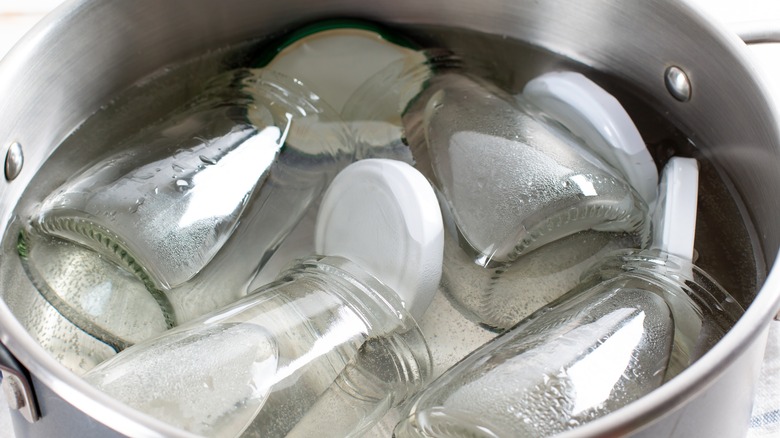Do You Always Need To Sterilize Canning Jars?
The canning process helps to preserve food and is a fantastic way to save money while also maintaining most of the food's nutritional value (via Eat Right). Many of the foods available in mass production today have gone through the canning process, but during the pandemic, farmers and home gardeners who grow their own produce for wholesale or personal use have taken to canning at home. If you are on the foodie side of TikTok, odds are you've seen a creator like @lifeaskandi document their home-canning process. Home canning has been around for centuries, and it's likely some of your family and friends have passed down their canning methods and traditions through the ages.
Canning isn't all fun and games, though. There are a lot of steps to take, time to commit to, and things that can go wrong. One of the things you must do in order to combat potentially deadly mistakes is to sterilize or pasteurize your tools and canning materials.
Pasteurization vs. sterilization
When getting into the technical side of canning, terms can become a bit fuzzy, so to clarify: Sterilization kills off all wild bacteria, whereas pasteurization kills off most of the dangerous kinds of bacteria (via Terra Food Tech). According to Utah State University, jars do not need to be sterilized beforehand if they experience 10 minutes of boiling in a water bath canner, because the time spent under extreme heat pasteurizes the jars (this rule extends to pressure canners as well). However, if jars spend less than 10 minutes in the boiling water, you must pasteurize or sterilize them before filling the canning materials. A lot of canning informational guides call for sterilization, but pasteurization works just as well for canning by destroying organisms harmful to humans (via New York State Department of Health).
Pasteurization is imperative to the canning process, and if done incorrectly or neglected, there can be serious and even deadly consequences. The CDC claims that home canning is the leading cause of botulism in the United States. Botulism is an invisible, toxin-induced illness that attacks the human nervous system and can lead to death. But there is an easy way to prevent botulism when canning from home. Pasteurize or sanitize your canning tools so no sneaky bacteria find their way into your delicious jars of peaches, tomatoes, or green beans. Be sure to follow the safety guidelines outlined in the USDA Complete Guide to Home Canning, and if you see anything amiss with the food you have canned — like cracks or leaks in the container or moldy or off-smelling food — toss it immediately.

